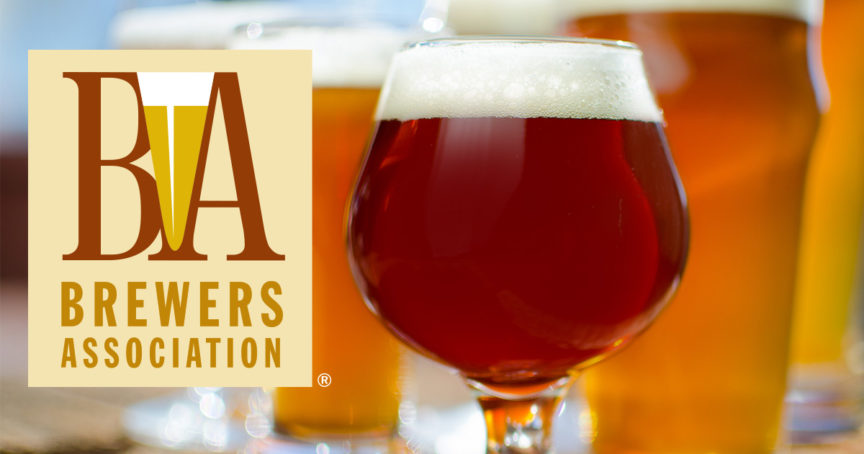Boulder, CO • January 12, 2018 — The Brewers Association (BA)—the not-for-profit trade association dedicated to small and independent American brewers—is pleased to announce the recipients of its 2018 Research and Service Grants Program, designed to further the development of a healthy and sustainable raw materials supply chain. This year, 17 grants totaling $432,658 were awarded to researchers and organizations across the country.
Since the inception of the grant program in 2015, the BA has provided more than $1.2 million in funding for 60 projects—addressing public barley and hop variety development, hop disease and hop aroma—as well as supported affiliated national and state-level grower organizations.
“The Brewers Association is proud to fund beer research and service grants in support of BA member breweries,” said Bob Pease, president and CEO, Brewers Association. “Supporting research that aligns with member priorities ensures a sustainable and profitable future for small and independent U.S. breweries.”
“This funding cycle represents a continued focus on ensuring a healthy and accessible supply chain that satisfies the unique requirements of independent craft brewers,” said Chuck Skypeck, technical brewing projects manager, Brewers Association. “We are pleased to have the opportunity to partner with a diverse group of world-class researchers and institutions.”
“The Research and Service Grants funds are an important and valuable benefit to the industry. They connect the craft brewing community with world-class research capabilities at Oregon State University to solve technical problems facing the entire brewing industry,” said Thomas H. Shellhammer, Ph.D., Nor’Wester professor of fermentation science, Oregon State University. “I am honored that the BA has chosen to fund work in my lab since it allows me to work on industry-relevant scientific and technical issues that not only advance science, but answer important and practical questions faced by craft brewers.”
2018 Grant Recipients (please see complete summary here: PDF)
Barley
Creation and Development of Better Germplasm Lines for All-Malt Barley Varieties
· Partner: USDA-Agricultural Research Service, Aberdeen, ID
· Principal: Gongshe Hu
Breeding for Barley Contributions to Beer Flavor
· Partner: Oregon State University
· Principal: Pat Hayes
Stable and Sustainable Dryland Production of High Quality Malt Barley
· Partner: Montana State University
· Principal: Jamie Sherman
Mapping Malt Quality Traits to Facilitate Marker Assisted Breeding and Development of Winter Malt Barley
· Partner: Virginia Polytechnic Institute and State University
· Principal: Carl Griffey
Building a Winter Malting Barley Market for the Great Plains
· Partner: University of Nebraska
· Principal: Stephen Baenziger
Utilizing a Multi-State Dataset to Support Coordinated Breeding of Local Malting Barley
· Partner: University of Minnesota
· Principal: Kevin Smith
Improving Malting Quality in Two-Rowed Barley by Reducing Grain Protein Content Through Marker Assisted Backcrossing
· Partner: University of California, Davis
· Principal: Alicia del Blanco
All-malt Barley: Nitrogen and Cultivar Management Strategies for Idaho Growers
· Partner: University of Idaho
· Principal: Christopher Rogers
Enhancement of Winter Hardiness in Two-Rowed Barley Varieties for the Craft Brewing Industry
· Partner: University of Minnesota
· Principal: Brian Steffenson
Eastern United States Spring Barley Nursery (ESBN)
· Partner: North Dakota State University
· Principal: Richard Horsley
Metabolomics of Hot Steep Malt Extracts and Integration with Sensory Data
· Partner: Colorado State University
· Principal: Adam Heuberger
Prospects for Breeding Perennial Malting Barley
· Partner: N/A
· Principal: Colin Curwen-McAdams
Hops
Nitrogen Application Timing Effects on Nitrate Accumulation in Hop Cones, Yield and Cone Quality Factors
· Partner: USDA Agricultural Research Service, OR
· Researcher: David Gent
Assessing the Genomic Impact of Drought and Heat on Hop Growth and Production
· Partner: USDA Agricultural Research Service, OR
· Researcher: John Henning
Mapping Novel Loci for Powdery Mildew Resistance in Hops
· Partner: University of Minnesota
· Principal: Gary Muehlbauer
Developing Economic and Environmental Focused Hop Nitrogen Recommendations for Temperate Climates
· Partner: University of Vermont
· Principal: Heather Darby
Hop-Derived Dextrin-Reducing Enzymes from Dry-Hopping
· Partner: Oregon State University
· Researcher: Thomas Shellhammer
Proposals for 2019 funding will be accepted from March 1, 2018 to May 31, 2018. More information about the grant program can be found at brewersassociation.org.
###
About the Brewers Association
The Brewers Association (BA) is the not-for-profit trade association dedicated to small and independent American brewers, their beers and the community of brewing enthusiasts. The BA represents 4,000-plus U.S. breweries. The BA’s independent craft brewer seal is a widely adopted symbol that differentiates beers by small and independent craft brewers. The BA organizes events including the World Beer CupSM, Great American Beer Festival®, Craft Brewers Conference & BrewExpo America®, SAVOR℠: An American Craft Beer & Food Experience, Homebrew Con, National Homebrew Competition and American Craft Beer Week®. The BA publishes The New Brewer® magazine, and Brewers Publications™ is the leading publisher of brewing literature in the U.S.
Beer lovers are invited to learn more about the dynamic world of craft beer at CraftBeer.com and about homebrewing via the BA’s American Homebrewers Association and the free Brew Guru™ mobile app. Follow us on Facebook and Twitter.
The Brewers Association is an equal opportunity employer and does not discriminate on the basis of race, color, national origin, gender, religion, age, disability, political beliefs, sexual orientation, or marital/familial status. The BA complies with provisions of Executive Order 11246 and the rules, regulations, and relevant orders of the Secretary of Labor.

